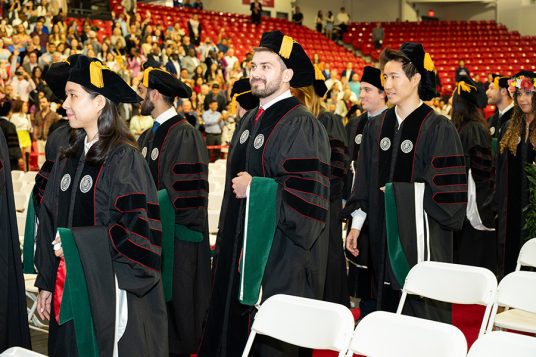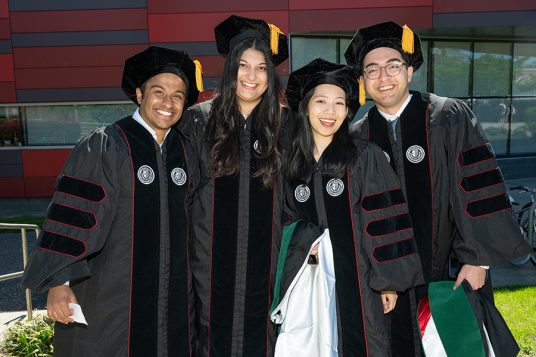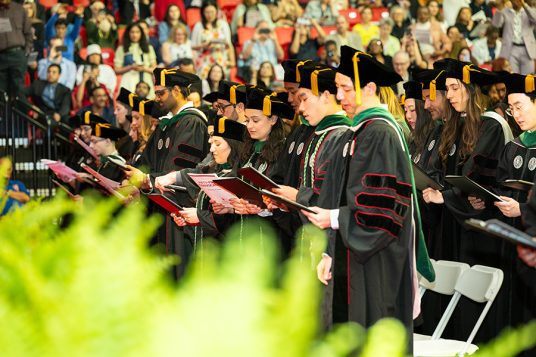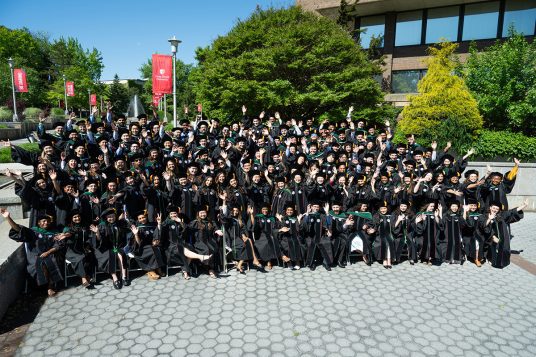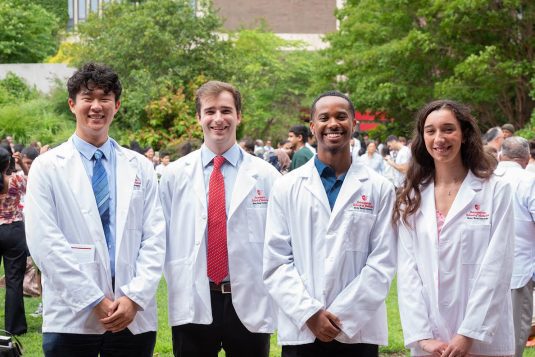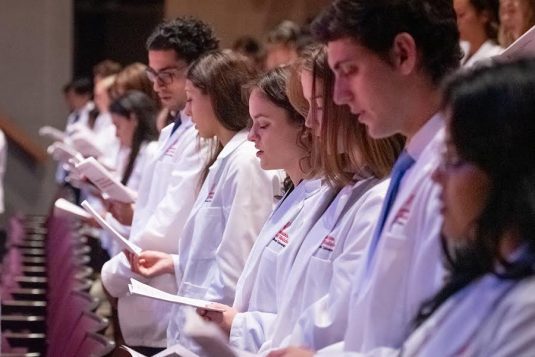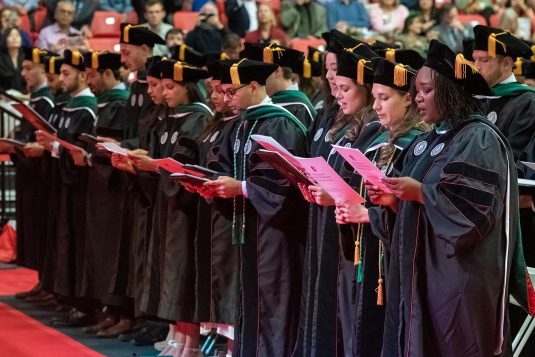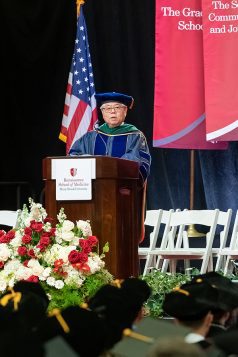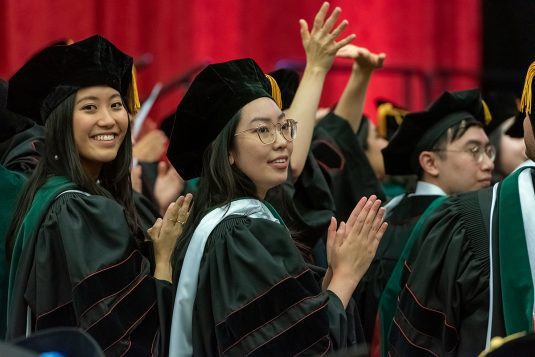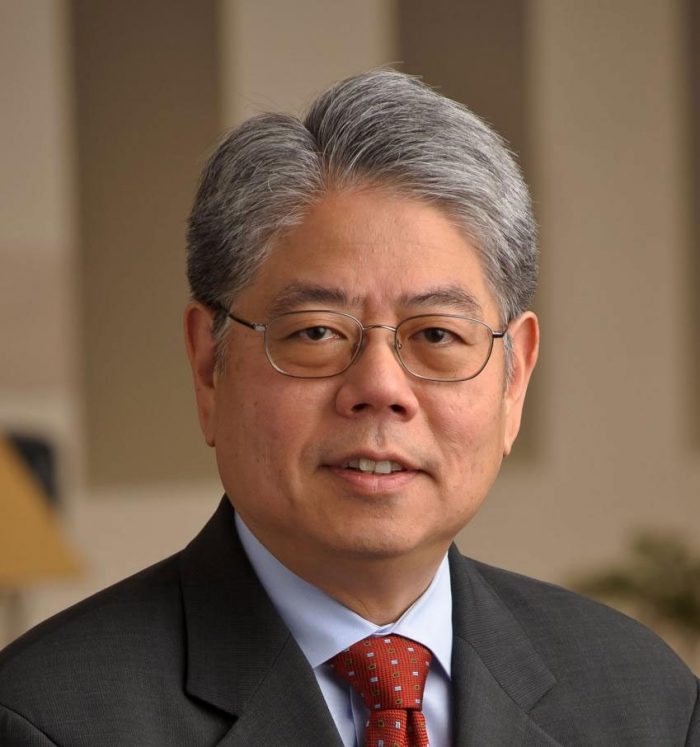133 RSOM graduates celebrate during the school’s 51st Convocation; residency training begins in July
The Renaissance School of Medicine (RSOM) at Stony Brook University celebrated its 51st Convocation on May 19 when 133 graduates received their Doctor of Medicine (MD) degree. The newly minted physicians will start their residency training in early July.
A talented and diverse group set to practice medicine in more than 20 specialties – such as residencies related to primary care, anesthesiology, emergency medicine, neurology, radiology, surgery and psychiatry – the RSOM graduates, collectively, will practice at leading hospitals and academic medical centers in New York State and 17 other states. A majority (55 percent) will remain in New York, with nearly 15 percent staying at Stony Brook Medicine.
The need for more physicians in the United States and globally remains high, particularly because of aging populations and the need for physician specialists. With ever increasing new technologies to diagnose and treat diseases, and the emergence of AI and telemedicine, opportunities to further advance Medicine in this 21st Century will expand. New MDs entering the workforce will be a major part of that advancement.
Peter Igarashi, MD, the Knapp Dean of the RSOM and Presider over the Convocation, congratulated the 133 graduates and cited their dedication, perseverance, and achievements during this celebration of their journeys that brought them all to this moment as new physicians.
“Over the last four plus years at the Renaissance School of Medicine, you have received the best medical education that New York State has to offer,” said Dr. Igarashi. “The combination of training in the science and art of medicine and the social determinants of health has prepared you to be doctors, well-equipped for whoever walks in the door.”
Susan M. Wolf, JD, a nationally recognized leader in medicine, law, and ethics, Chair of the Consortium on Law and Values in Health, Environment & the Life Sciences, Regents Professor, and Professor of Medicine at the University of Minnesota, delivered the Convocation Address.
Professor Wolf has devoted her academic career to solving ethical and legal challenges in patient care and biomedical research. Her pioneering work has influenced how medicine approaches end-of-life care, the return of research results and incidental findings, and the ethical integration of technologies like genomics and AI.
She encouraged the students to practice medicine with the highest ethics and to be patient advocates during the caregiving process, helping to empower patients and their decisions in an age when medicine is advancing at a rapid pace even as quality of life and death issues remain paramount.
The 133 new MDs celebrated with each other, RSOM faculty, friends and family members throughout the day. This included a special shout out and a rousing applause from them during the ceremony directed to their parents and loved ones, who sacrificed much time and means throughout the graduates’ medical school journey.
The RSOM Class of 2025 join a long history of the school’s graduates. Since the first graduating class of 1974, the RSOM has issued more than 5,000 MD degrees, more than 600 PhD degrees, and nearly 750 master’s degrees to more than 6,200 graduates.

